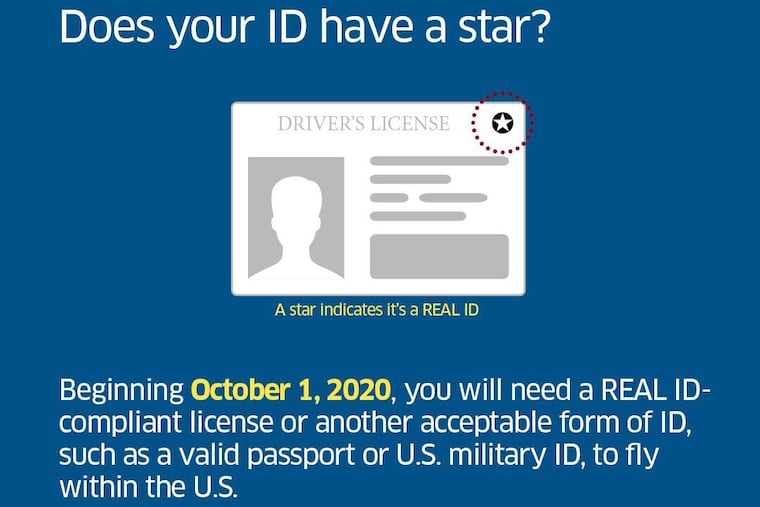Here’s why N.J. won’t blow Thursday’s REAL ID deadline, even though most residents can’t get the cards
The more secure New Jersey identification cards are still not widely available, as the 2020 deadline for "REAL ID" approaches.

New Jersey’s deadline to issue driver’s licenses and identification cards that meet new federal security standards is Thursday. And technically, the state won’t miss that deadline, because it is offering REAL ID-compliant cards — just not to most residents.
Ten of the New Jersey Motor Vehicle Commission’s 39 locations are offering REAL ID-compliant cards by appointment only to residents who live within a roughly 20-mile radius. Locations in Trenton and Eatontown, Monmouth County, are fully operational, while eight other locations are inviting residents to get the IDs as beta testers. The commission is not publicizing the locations of those agencies during the testing phase, officials said.
Residents can sign up online to be notified when a location near them offers the cards.
New Jersey is one of the last three states still operating under an extension by the U.S. Department of Homeland Security to comply with the post-9/11 federal REAL ID Act, which strengthens security standards for IDs. The department updated the Garden State’s compliance status to “under review” this week. New Jersey officials say they meet the requirements.
Last month, state officials submitted documentation for the department to evaluate the state’s REAL ID practices and determine whether they meet 43 categories of requirements, a process that could take several months.
The Motor Vehicle Commission plans to expand its REAL ID operation “as we build capacity,” said spokesperson Jim Hooker. Brenda S. “Sue” Fulton, the commission’s chief administrator, has said residents will have plenty of time to get REAL ID-compliant cards before certain federal agencies stop accepting standard New Jersey IDs in a little less than a year.
Starting Oct. 1, 2020, anyone who wants to board a domestic flight or enter secure federal buildings that require ID at the door must have an identification card that complies with the REAL ID Act. Passports and military IDs fit the bill, but states must offer driver’s licenses and nondriver IDs that also follow the stricter standards.
Compliant identification cards must have the same machine-readable technology and security features and they require higher standards for supporting identifying documents.
The Department of Homeland Security granted further extensions to the other two states not yet in compliance: Oklahoma and Oregon. Oregon now has until Aug. 7 to comply with the federal law, and Oklahoma must comply by Sept. 18.
The federal government had granted extensions to dozens of states, including Pennsylvania. Since that state began issuing REAL ID-compliant cards to all eligible residents in March, more than 400,000 Pennsylvanians have chosen to get the cards. PennDot anticipates about 1.3 million people will get REAL ID-compliant cards before next October.
Leslie S. Richards, Pennsylvania’s secretary of transportation, said in a statement that her office is “pleased that so many Pennsylvanians have been proactive” and chosen to get the cards.